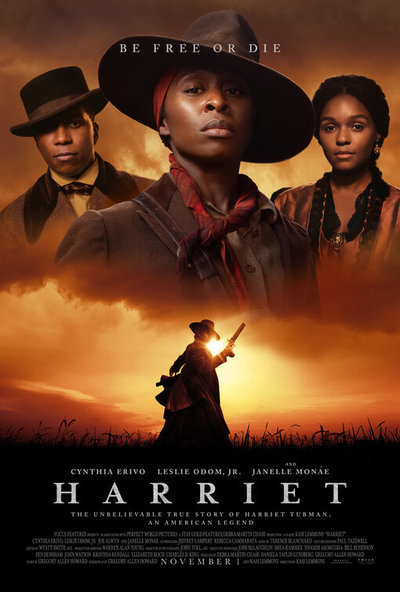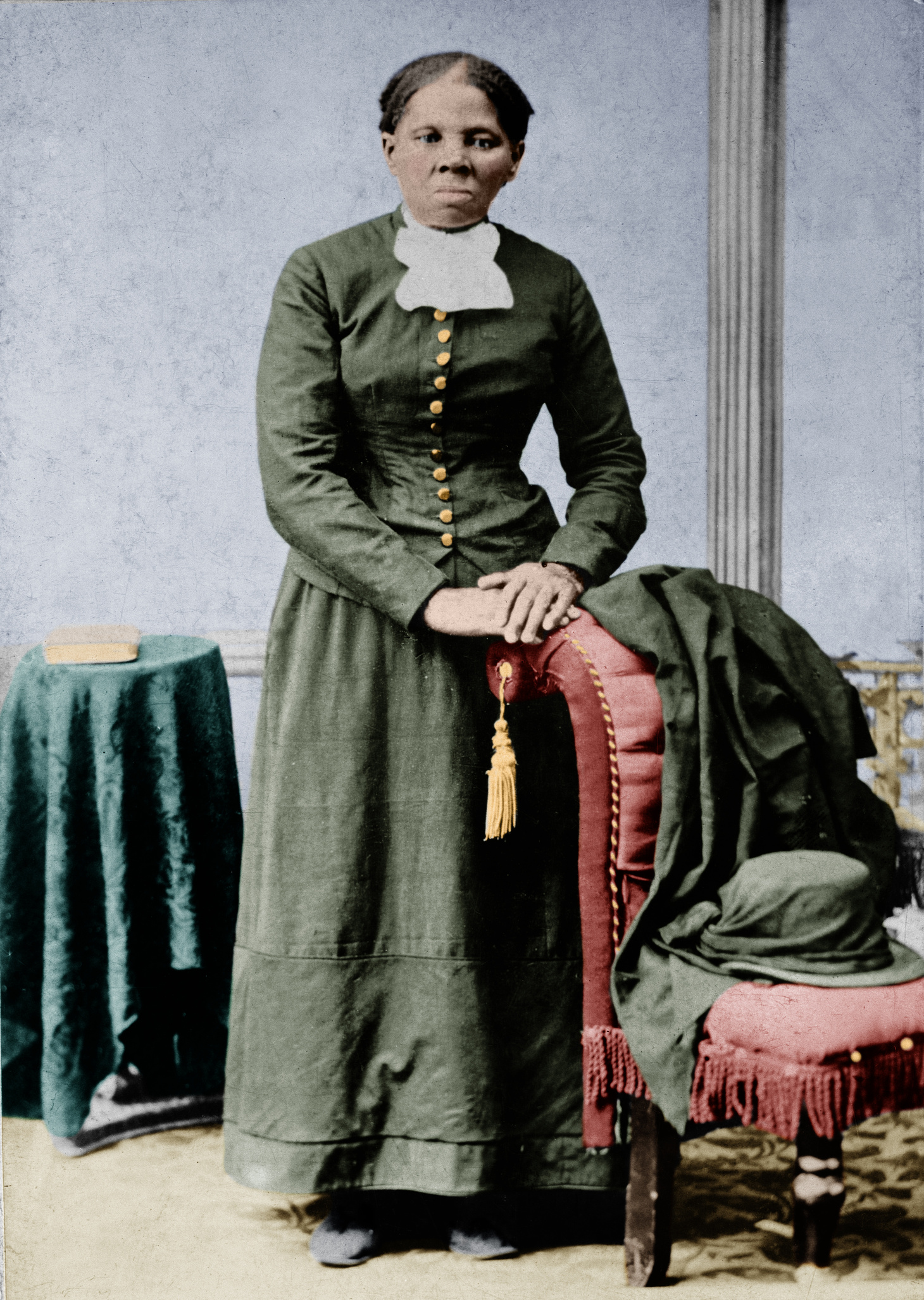
Twasn’t me, ’twas the Lord! I always told Him, ‘I trust to you. I don’t know where to go or what to do, but I expect You to lead me,’ an’ He always did. Harriet Tubman
We interrupt this series on African-American women with an exciting announcement! For the past several months we have been relating the stories of remarkable black women in America. We began with the stories of 18thand 19thcentury African-American women. Some were born as slaves and some were born free. All of these women were courageous examples of what can be done by a woman who does not let her circumstances dictate to her. These women rose above many hardships including poverty, illness, prejudice, internal conflicts, and the limitations of their times to follow their call from God and affect the lives of many other people for good. Why were they able to live in a realm above their circumstances? It is because they all received strength from God. They all answered the call in their lives to help others.
One of the most amazing of these women who really exemplified this description was Harriet Tubman. Several weeks ago (October 24, 2019) we did a story on Harriet on this blog. Recently, my husband and I went to see the movie, “Harriet”. I highly recommend this film.
Harriet
First of all, I want to say that the movie was beautifully photographed. The plantation buildings, costumes, and background were all historically accurate. I think a movie is great when I can put myself into the picture and feel as if I’m really there. If I can imagine myself there listening to and responding with the characters, then the movie is well done. This is especially true when the focus is on the character as well as the story, as this one is.
Not only was the setting and background of this production engaging, but the actor who portrayed Harriet (Cynthia Erivo) was very genuine. Movies can be completely ruined when the audience sees the actor and not the character. Cynthia Erivo unselfishly left herself in the background and made the incredible character of Minty/Harriet come shining through. All of the actors in Harriet did a fine job of portraying the individual they were representing. I think that says something about the fine directing as well.
The film focused on Harriet Tubman and demonstrated what a life of courage and tenacity can do to make life better for those who have the faith to pursue it.
Brief synopsis
The movie opens with a scene that takes place in the yard in front of the plantation mansion of Master Brodess. The slaves, Araminta “Minty” Ross, her parents, her free husband, John Tubman, and others are attending a church service led by a newly freed-man, Rev. Green. After the service, John and Ben Ross respectfully request that Master Brodess honor Brodess’s dead father’s wishes to free Ben’s wife and children after a certain age. Brodess refuses. Minty prays and asks God to retaliate against Brodess. Brodess dies sometime later. Brodess’s son, Gideon, who had a fondness for Minty when they were children decides to sell her.
Minty does not want to leave her family. She has recurring dreams and visions and one of the most wounding for her is the one where her siblings are being sold to other plantations. As often happens when the family is separated, Minty realizes that she may never see some of her sisters and brothers again. Minty decides to run away rather than be sold. She journeys more than 100 miles to freedom in Pennsylvania. While there she takes a new name – Harriet Tubman – Harriet for her mother and Tubman for her husband.
Minty loved her new freedom and wanted to share it with others. She also hoped to rescue some of her family. She went to work for the Underground Railroad. The movie continues with the story of how she rescued many slaves using the underground railroad and eventually served during the Civil War rescuing over 200 more runaway slaves. Throughout this time Gideon Brodess tries to capture her. He hires seasoned slave hunters but Minty, now Harriet, manages to escape claiming all the while that it is with God’s help.
Comments
There are many things that stand out in this exceptional movie, but I want to focus on Harriet’s faith. I will also make some comments on how slavery was depicted in this movie.
Harriet – Throughout the entire movie we see that Harriet has a deep faith and trust in God. She made no apology for that. Her parents raised her in the Christian faith and in spite of the way that the Bible was sometimes used to justify slavery she never wavered from her belief in God.
Since she was a young girl, Harriet had experienced visions and dreams. She was able to discern the voice of God Who was warning her of danger and telling her how to escape. Sometimes Harriet would slip into a trance putting her at risk if she was discovered laying helplessly on the ground. Many questioned her spirituality, including her brother who thought she was insane. He changed his mind when the information she received in a vision led them to safety.
The slaves had given Harriet the name “Moses” because she rescued and led people to a better land. The film depicts Harriet sneaking back down to Maryland and calling the people that she will rescue by singing portions of Negro spirituals. This is evidence in fact that many slaves had adopted the Christian faith. Harriet rescued so many slaves that a reward was put out for her capture, but she refused to give up. In the film, she tells a gathering of people at the Anti-Slavery Society in Philadelphia, who would try and convince her to be cautious, that she would “give every last drop of blood in my veins to free them.”
I won’t give any more away. Please go see the movie. You will witness the incredible courage and heroism and a woman who was determined to follow God by helping others, keeping true to her motto “I’ma be free or die!”
Slavery– The film does a good job of depicting slavery without resorting to the violence that we often see in other movies (such as 12 Years a Slave). Yet, in this movie there are still several ways that we witness the horrors of slavery. Once when Harriet is bathing, we see the scars on her back. Other men and women are portrayed with wounds and brands. We see that abuse also comes in the form of rape when Harriet’s former owner, Gideon and a slave hunter share stories about the number of women they had sex with. And there is emotional abuse too; when we see the separation of family members movingly portrayed.
But, one of the most abusive things about slavery for me is how the Bible was used to “prove” that slavery is condoned by God. The film depicts this by starting right out with a scene where the owner was holding a mandatory church service for the slaves. Reverend Green (who later gives Minty invaluable help when she escapes) is giving a condescending sermon where he quotes Colossians 3:22, “Slaves, in all things obey those who are your masters on earth, not with external service, as those who merely please men, but with sincerity of heart, fearing the Lord.” The sermon is meant to appease the master and his wife who are listening. It is a good cover for Rev. Green who is really helping slaves to escape. And we know as Harriet says later, “God don’t mean people to own people.”
Conclusion– Harriet Tubman died in Auburn, New York on March 10, 1913 at age 93 (91 according to the film). She led a life that made a difference to many people. Harriet accomplished much in spite of illness, threats, poverty, and danger all around her. Her childlike faith and determination are an example for us all. One of her final comments reinforces the character of Harriet as a courageous warrior and leader for God.
“I go to prepare a place for you” (John 14:3).


